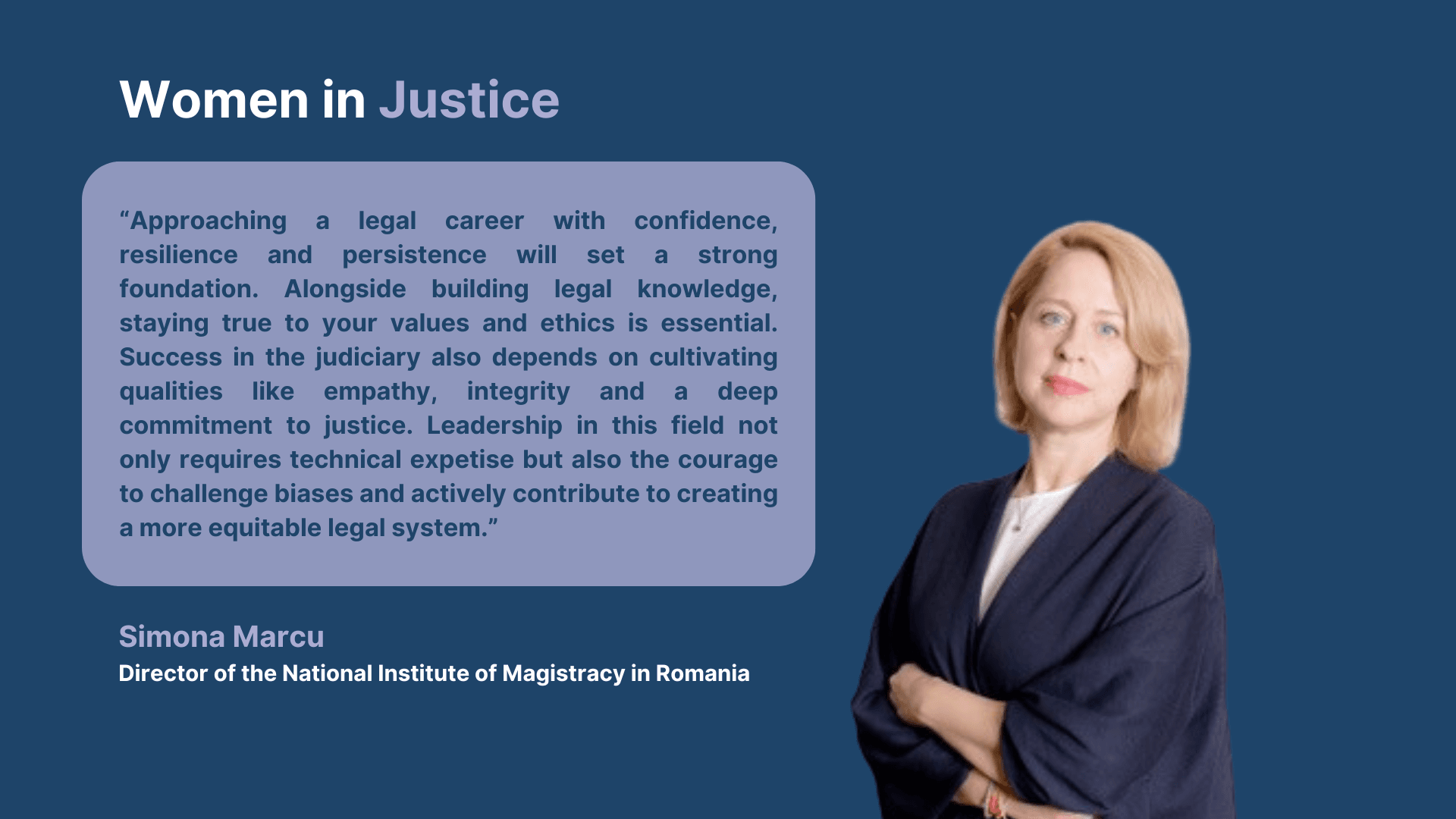Simona Marcu, Director of the National Institute of Magistracy in Romania, is a strong advocate for gender equality and diversity within the judiciary. In her interview, she discusses the role of national judicial training institutions in promoting a more inclusive and representative justice system. She also highlights the importance of supporting female professionals and shares her view on the key qualities necessary to succeed with a career in law and justice.
This interview series, launched in connection with the International Day of the Girl Child, highlights some of the inspiring women leaders within our Network.
Simona Marcu, as a Director of the National Institute of Magistracy in Romania, you set a powerful example for women in leadership positions. Throughout your personal journey, have you faced any challenges or obstacles as a woman in the judiciary, and how did you overcome them?
Balancing professional expectations with traditional gender norms, along with managing both professional and personal responsibilities, has been an important part of my journey.
Resilience and a commitment to strong work ethics have been key. Supporting other female professionals and advocating for inclusion within the judiciary has also helped to create pathways for more women to succeed in leadership roles.
How do you see the role of national judicial training institutions in shaping the future of the judiciary, particularly in promoting gender equality and diversity within the profession?
In my view, judicial training institutions play a paramount role in shaping a more inclusive and representative judiciary. By providing access to the profession and training on gender equality, unconscious bias and diversity, these institutions help judges better understand the importance of fairness in the judicial process.
As for the European Judicial Training Network, it plays a vital role in advancing judicial training, fostering cooperation and sharing best practices across Europe. How do you see EJTN’s contribution to the professional development of women in the judiciary?
EJTN plays a crucial role in supporting women in the judiciary by offering inclusive training programmes that promote knowledge exchange and collaboration. These opportunities help women to strengthen their leadership skills and advance into more prominent roles, therefore contributing to a more inclusive and representative judiciary across Europe.
With young women aspiring to careers in law and justice, what advice would you offer to those entering the field today, and what do you believe are the key qualities they should cultivate to succeed in judicial roles?
Approaching a legal career with confidence, resilience and persistence will set a strong foundation. Alongside building legal knowledge, staying true to your values and ethics is essential. Success in the judiciary also depends on cultivating qualities like empathy, integrity and a deep commitment to justice. Leadership in this field not only requires technical expertise but also the courage to challenge biases and actively contribute to creating a more equitable legal system.
For more information on our Member, National Institute of Magistracy in Romania, visit their website or follow them on LinkedIn, Facebook, Instagram, X and YouTube.




